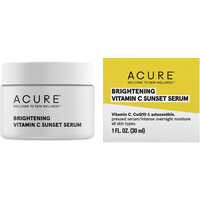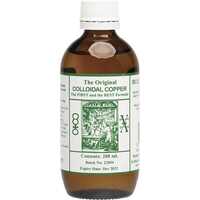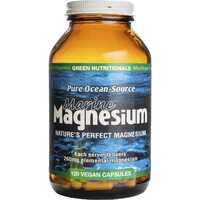Beautiful skin and hair don't happen by accident, especially as you age. Just like other parts of the body, the exterior surfaces that define your physical beauty need regular nourishment. There are many effective ways to feed your skin and hair, with internal and topical ingredients both valuable in different situations. From the foods you eat to the creams and oils you apply, vitamins and minerals play an essential role in how you look and feel.
Let's review basic skin and hair health and take a look at the most beneficial vitamins and minerals available.
Skin Health
Before we look at particular ingredients, it's important to understand exactly how your skin functions. Often called the largest organ in the body, your skin provides a much-needed defence mechanism against the external world. Skin is a flexible tissue that covers your entire body, and despite its softness, it plays an important protective role. Your skin shields you from UV irradiation, chemical stresses, extreme temperatures, and bacterial infection, among many other dangers.
Nutrition is a crucial factor linked with skin health. The vitamins and minerals in foods and beauty products can help to boost the structural integrity and biological function of your skin, with proper nutrition complementing internal factors in regulating skin barrier function. Limited nutritional intake can alter the biological function of your skin, resulting in dryness, abnormalities, and a lack of environmental protection.
Hair Health
As a very particular protein, hair is one of the defining characteristics of human beings and other mammals. This filament structure grows from follicles, and it includes the part beneath the skin and the hair shaft above the surface. Unlike your skin, hair is not essential to good health, but it does provide some important functions. It offers warmth and protection to some degree, and it provides a sensitive touch sense by connecting to nerve receptors within the skin.
Nutritional intake has been linked to hair health, with particular vitamins and minerals found to affect dermatological issues and reduce hair loss. Several micronutrients play a role in the hair follicle cycle, regulating cellular turnover and helping with follicle development and immune function. Vitamins and minerals also help to boost the appearance of the hair, with certain nutrients known to influence hair volume, texture, and lustre.
The Most Important Micronutrients for Skin and Hair
Like many things in life, the best way to improve the health and vitality of your skin and hair is to maintain a healthy diet. Along with eating fresh and unprocessed foods, other factors likely to influence your skin and hair include exercise, sleep, and mental health. Focusing on the functional benefits of specific micronutrients can also be beneficial, especially when combined with a balanced diet and exercise regime.
The following vitamins and minerals are known to impact the health and appearance of skin and hair:
Vitamin C
Vitamin C plays a central role throughout the body, including your skin and hair. Among other things, vitamin C helps to improve skin texture, stimulate collagen production, and limit the effects of sun damage. It also helps to prevent hyper-pigmentation, and it assists in the treatment of eczema. As a necessary ingredient for collagen production, vitamin C is also vital for the health and appearance of your hair.
Vitamin C can be found in many foods, and it's also common in health supplements and cosmetic creams. Foods rich in vitamin C include citrus fruits such as oranges and lemons, capsicums, strawberries, tomatoes, and cruciferous vegetables like broccoli and cauliflower. Based on multiple studies, topical vitamin C treatment may help to treat acne, limit early skin ageing, prevent sun damage, and improve the overall appearance of the skin.
Vitamin D
Vitamin D also plays a central role in skin protection, healing, and rejuvenation. Sometimes called the "sunshine vitamin", vitamin D contributes heavily to skin growth, repair, and metabolism. As a powerful antioxidant, it helps to destroy free radicals and enhance immune system function, and it may also assist in reducing the signs of premature ageing.
Vitamin D can be accessed via seafood products and other fresh foods, and it's a regular addition to many supplements and cosmetic products. Common food sources of vitamin D include salmon, tuna, sardines, and cod liver oil. Vitamin D is not as ubiquitous as other micronutrients. However, orange juice, dairy products, and other common foods are often fortified with this vitamin to ensure healthy intake levels.
Vitamin E
Vitamin E is beneficial to skin and hair health, with this fat-soluble antioxidant responsible for a variety of important functions. Vitamin E is not a single compound but a group of molecules with related structures. As an antioxidant, vitamin E helps to protect the skin from damage, including UV-induced free radical damage.
Vitamin E can be found in many foods, including plant-based oils, nuts, seeds, fruits, and vegetables. This powerful vitamin is found readily in almonds, sunflower seeds, wheat germ oil, pumpkins, and red capsicums. The topical application of vitamin E offers skin benefits not available from food sources alone, which is why this vitamin is so common in creams and oils.
Zinc
Zinc is a healing mineral vital to skin health, crucial for elastin production, and beneficial for acne sufferers. This mineral works as an antioxidant, protecting your cells from damage and helping to prevent premature ageing. If you've suffered a skin injury, zinc is essential throughout the recovery process. Zinc is also needed for immune system function, which makes it essential in the fight against environmental pathogens.
Many nuts are particularly high in zinc, including Brazil nuts, almonds, cashews, hazelnuts, and walnuts. Other foods rich in zinc include rice, rye, barley, sunflower seeds, sesame seeds, olives, soy foods, seaweed, and lean meats. To get maximum benefits, you can soak grains, nuts, and seeds in water overnight to release phytic acid and improve zinc absorption.
Copper
Copper is another beneficial mineral in the fight against ageing skin. It promotes the production of collagen and elastin, which provides skin with both strength and elasticity. Along with zinc and various vitamins, copper is needed to create elastin and keep skin supple. Copper enhances the function of antioxidants to protect skin from oxidative damage, and it also helps to promote healthy hair and skin pigment.
Copper is included in numerous dietary sources, including many nuts and seeds. High doses of copper can be found in Brazil nuts, hazelnuts, walnuts, pistachios, cashews, pecans, sunflower seeds, sesame seeds, coconut, soybeans, and mushrooms. Copper is also found in other protein-rich foods, including organ meats, fish, seafood, and chocolate.
Magnesium
Magnesium is an important mineral for skin and hair health, and it's also essential for teeth, bones, and the nervous system. Magnesium intake can help with skin elasticity, and magnesium deficiency can lead to premature skin ageing. Magnesium mitigates acne and other skin problems, and it may also help to reduce hair loss by regulating the stress response.
Similar to other minerals on this list, eating heavily processed foods and drinking too much alcohol can leach the body of magnesium. Nuts rich in magnesium include Brazil nuts, chestnuts, hazelnuts, almonds, walnuts, and pecans. Other magnesium-rich foods include coconut, buckwheat, barley, kidney beans, lima beans, leafy greens, dates, and lentils. Magnesium can also be effective when used topically, which is why it's included in many cosmetic products.
Calcium
Calcium is widely associated with bone and oral health, and it's also vital to healthy skin and hair. Our bodies contain more calcium than any other mineral, so it's important to keep your levels up by eating calcium-rich foods. Calcium helps to promote firm and elastic skin and can deter acne in some situations. Along with weak bones and bad teeth, calcium deficiency may also cause thin skin and hair loss.
Calcium can be found in many common foods, and it's also added to many supplements and beauty products. Foods rich in calcium include sesame seeds, kelp, kale, watercress, parsley, dandelion greens, chickpeas, and dairy products. Much like the other minerals on this list, calcium is found in many beans and nuts, especially almonds, hazelnuts, and pistachios.
Selenium
Selenium plays an active role in skin health, often in combination with other micronutrients. Among other things, selenium helps to protect the skin from UV irradiation and associated oxidative stress. It has also been considered for the treatment of psoriasis, which is a skin disease associated with itchy rashes and scaly patches. Selenium helps to modulate multiple biological functions, and its deficiency has been associated with an increased risk of skin cancer.
Selenium is mostly consumed via common foods, including bread, cereals, eggs, seafood, and red meats. The very best sources of selenium are not so common, however, including organ meats, grapefruit, and Brazil nuts. Selenium sulfide is widely used to treat dandruff and seborrheic dermatitis of the scalp. This mineral is also used on the face to promote skin firmness and protection.
If you want to promote healthy skin and hair, it's important to access the right vitamins and minerals. From fresh foods and supplements to cosmetic creams and oils, there are lots of effective ways to nourish your body. At Healthy being, we have a fantastic range of nutrient-rich foods and topical treatments, with all of our products delivering quality ingredients without unwanted additives. Shop now for free shopping options across Australia and worldwide delivery!


 Certified Organic
Certified Organic Vegan Friendly
Vegan Friendly  Vegetarian
Vegetarian Organic Ingredients
Organic Ingredients Dairy Free
Dairy Free Gluten Free
Gluten Free Keto Friendly
Keto Friendly

































